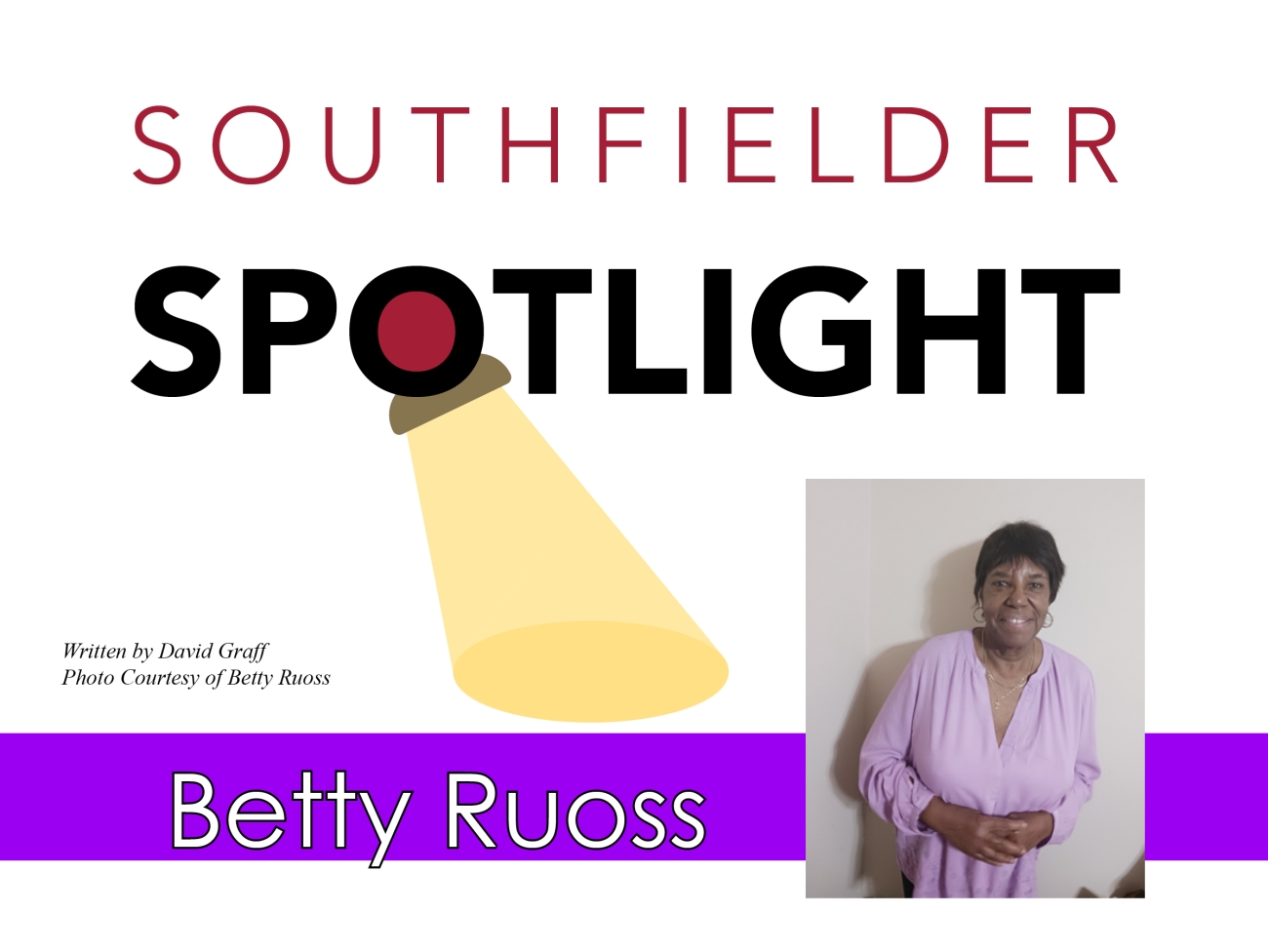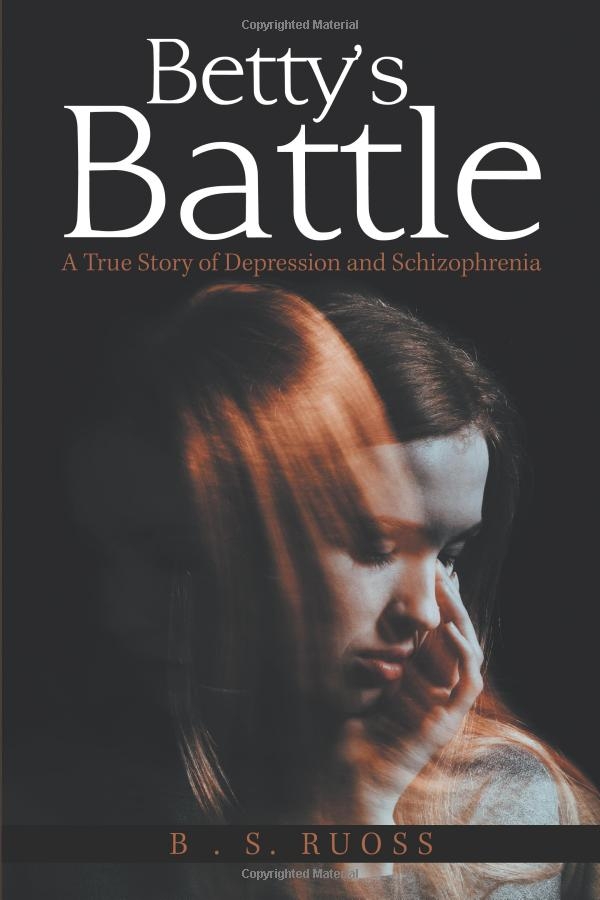Southfielder Spotlight on Betty Ruoss
January 20, 2023
Betty Ruoss is an author in Southfield, Michigan who has published several books on depression, schizophrenia and mental health including “Depression. What You Need to Know About the Illness”, “The Subject of Schizophrenia - All You Want to Know About the Illness” and her autobiography: “Betty’s Battle: A True Story of Depression and Schizophrenia.” Betty also published an article entitled, “From Failing Meds to the Ones That Worked” for the Schizophrenia Bulletin. The article was republished March 2019 in The Journal of Psychoses and Related Disorders Volume 45, Number 2 by the University of Maryland School of Medicine Psychiatric Research Center. Betty recently published an article, “A Long Road to Recovery from Schizophrenia and Depression” for the Connections Newsletter, by the Community Mental Health Association of Michigan.
Betty is an advocate for mental health; she participates in several committees and work groups through Oakland Community Health Network. In 2017, she received the OCHN Dan Moran Achievement Award for Inclusion and Advocacy. She has attended many rallies and conferences advocating for mental health and has spoken about her illness on many occasions, telling her story. She also had the opportunity to speak at the State Capitol in Lansing in April 2019 as an Oakland County Constituent at a Tri-County Public Mental Health Legislative Luncheon.
Betty struggled with schizophrenia and depression. But with the proper treatment, therapy and medications, her condition is now in remission and she has no signs of mental illness today. She now lives a fulfilling and productive life. Betty has a passion for helping others and advocating for those who suffer with mental illness.
Tell me about the feeling you had when your book was accepted to sell at various locations.
I was thrilled. I was very happy knowing that I would be able to reach people with my book and that it would be of help to others.
Now that you authored your own novel, do you enjoy reading books? If so, what kind of reading material typically appeals to you?
Self help books appeal to me. I like to read information on how to help or improve myself.
Did you have a mentor in your childhood that turned on your “lightbulb” to writing?
No. Just term papers that I wrote in high school, and a thesis that I wrote in college. In my 20’s, I really started to write. People noticed that my writing was pretty good, nonetheless, I didn’t publish any of my work until later in life. In fact, my first book, “Betty’s Battle,” was not published until 2018.
Have you visited the Southfield Public Library or Library Friends BookShelf this year?
No, not yet this year, but I do have a Southfield Library card. I am also on the Southfield Library email mailing list, and I do seek help from the library whenever I need it.
Are you currently working on any new books?
I have one book in mind. Most of the people who read “Betty’s Battle” said they couldn’t put the book down. It now has a 4.7-star rating on Amazon. Many people have suggested that I write a part 2 of Betty's Battle. I just turned 74 in November, and by the time I turn 75 I hope to have part 2 of “Betty’s Battle” completed.
Having lived through it yourself, how would you describe schizophrenia in your own words?
Schizophrenia is something that you never want to experience. Some of the symptoms are delusions and hallucinations, and they are hard to control without treatment. You definitely need the help of a medical professional to help you overcome it.
What was your childhood like? What was your family life like growing up?
My family was close-knit. I have a brother and a sister who are both living and older than me. We are very close. My parents are both gone to be with The Lord. My family is very caring and supporting.
What do you consider to be your greatest accomplishment?
My greatest accomplishment is being a mental health writer.
What was the catalyst that caused you to seek help from a mental health professional?
When I started hearing voices and my personality changed, I knew I needed professional help.
How did you feel when you were first diagnosed? What went through your mind?
I knew nothing about schizophrenia at that time. It was all new to me and it was scary.
What do you consider to be your greatest challenge in handling your mental illness?
Sticking to the right kind of medication regardless of the side effects. I stopped taking my medication many times because of the side effects from them which is talked about in my book: “Betty’s Battle” and in many of the articles I have published. Now I’m on medications that work, and I have no side effects from them.
What is one takeaway that you hope people gain from learning about your experience?
I hope that they are more knowledgeable about the illness and that they know what schizophrenia and depression entails.
A lot of people who have mental health issues do not seek treatment or leave treatment before they are cured. What is your advice to them?
Stigma is one of the biggest factors in preventing people from getting the help and support they need with mental health issues. By becoming more educated and informed about mental health treatment I believe this will help them to overcome the stigma, seek and stick to treatment.
What do you think of the mental health profession as a whole? What do they do well and what do you think they can improve upon?
I think everything they do is well done. I don’t see any room for improvement, specifically with the mental health professionals I have encountered.
What recommendations do you have for friends and family members of a person in their lives who is suffering from depression or schizophrenia?
Make sure they get the help they need as soon as possible, and stick with it.
What do you think is the most misunderstood thing about mental illness?
The most misunderstood thing is that most people don’t understand mental illness. People think you are going to hurt them, especially if you are a schizophrenic. Mentally ill people are harmless; more harmless than people who don’t have a mental illness.
What are your thoughts on hospitalization, medication, group homes, and court appointed guardianships for people with mental health disorders?
I think it is very good to have those services. They are there to help and that is why we should use them.
What do you see as the biggest challenge when advocating for mental health in the political sphere?
I think that people don’t really realize that you are there to help them. You have to convince them that you are there for them.
Is there anything else you would like to share?
Yes. Millions of people suffer with mental illness today. It could be you; be human and open up your heart to those who suffer with the illness.
Betty's Battle: A True Story of Depression and Schizophrenia can be purchased here.

